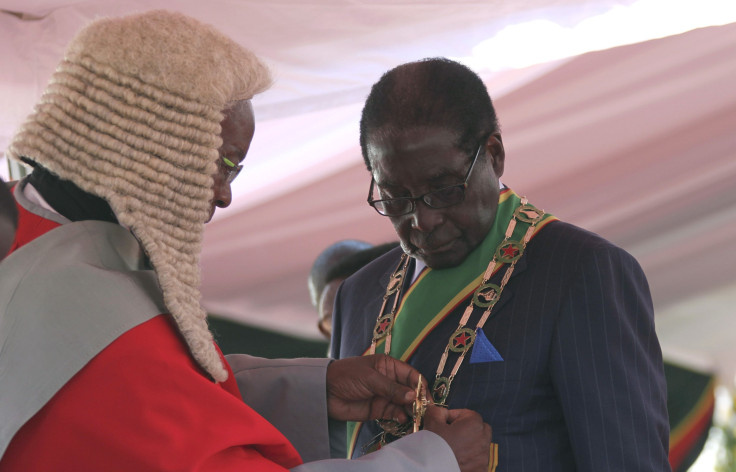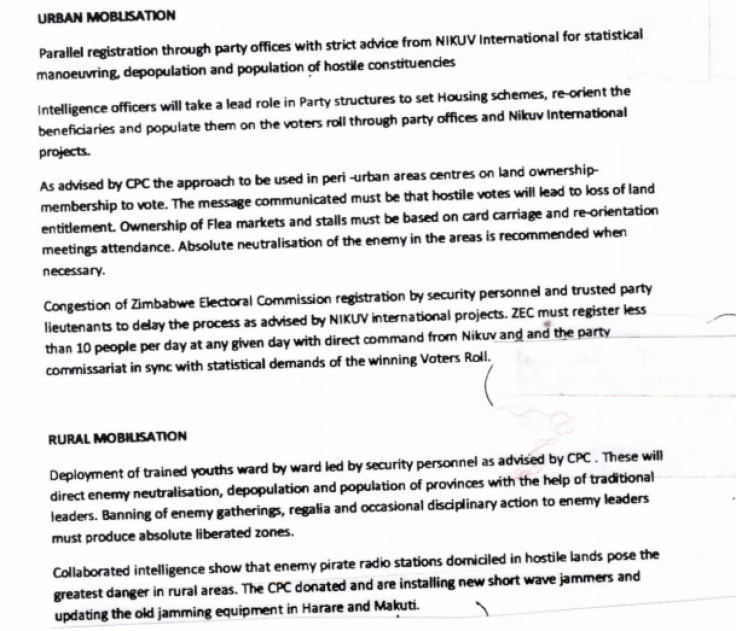China And Israeli Group Helped Zimbabwe's Robert Mugabe Rig Votes, According To Leaked Documents

On Aug. 22 of this year, Zimbabwe’s Robert Mugabe was sworn into office for another five-year term as president, extending his 33-year-long leadership, despite widespread claims of vote-rigging. While the allegations went previously unproven, new leaked documents are suggesting China had a hand in rigging the July 31 elections.
According to documents obtained by The Zimbabwean, a weekly publication for Zimbabweans in exile, ahead of the vote and knowing the election was in jeopardy, Mugabe’s political party, the Zimbabwe African National Union- Patriotic Front (ZANU-PF) decided to do something about it. It then held a meeting with the Joint Operations Command, which included members from the Chinese Communist Party and Nikuv International Projects, a private technology project company from Israel, to assist the party Registrar General’s office in manipulating votes.
“Director Mr. Chung Huwao, Chinese Communist Party, will lead a parallel registration and mobilization structure in systematic sync with NIKUV International projects and Registrar General’s office to minimize neutralise [sic] hostile votes in urban areas counter populating, under-registration (age band 18-15) [sic. Should read 18-35] and over registration (age bands 35-90),” the documented minutes of the joint meeting, held at the Manyame Air Force Base on June 13, 2013, read.

The strategy essentially delayed and obstructed voter registration in areas that were most likely to oppose Mugabe. According to 100 Reporters, specifics of the plan include the following:
- “- Registering less than ten real voters on ‘any given day with direct command from Nikuv and the Party
- - Populating the voters’ roll before, and during, elections to counter unfavorable voting outcomes,
- - Parallel registration and mobilization for ‘statistical maneuvering, depopulation and population of hostile constituencies,’ in coordination with the Registrar’s Office and an official of the Chinese Communist Party (Chung Huwao)”
Other strategies that were detailed included obstructing the registration of younger voters in the 18-35 brackets and over-registering the typically more pro-Mugabe voters in the 35 and over brackets.
Specifically, China’s job was “rural mobilization” that involved deploying thousands of trained youths to dissuade anti-Mugabe rallies and neutralize gatherings by helping provide jamming equipment to interrupt “enemy radio stations in domiciled areas.”
The report also went on to say that under China’s advice, the approach in suburban areas was to associate voting for the opposition (or "hostile," in the disturbingly militarized language of the minutes) with land seizure. “As advised by the CPC the approach to be used in peri-urban areas centers on land ownership -- membership to vote. The message communicated must be that hostile votes will lead to loss of land entitlement,” the document meetings detailed. “Ownership of flea markets and stalls must be based on card carriage and re-orientation meetings attendance.”
© Copyright IBTimes 2024. All rights reserved.












